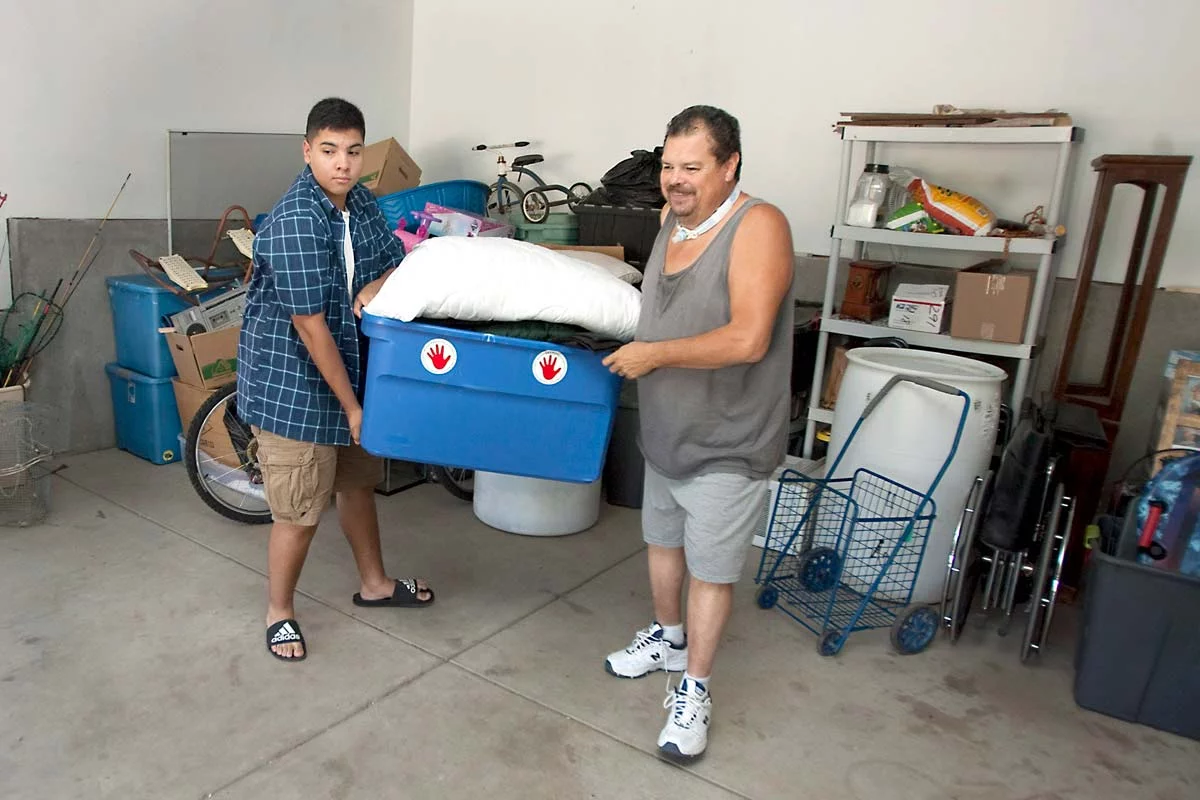
It was the worst kind of sick — sudden and severe. The fierce tug in John Hernandez’s stomach had him leaping over the movie-theater seats to the hallway restroom. He could taste it in the back of his throat. Was it the movie-theater popcorn? His heart was pounding. He was sweaty and shaky.
Could he be having a heart attack?
His wife of 28 years, Katherine, wasn’t going to wait to find out. She helped John to the car, and off they sped to a small community hospital closest to their hometown of Frederick, Colorado.

After five days of tests, John was sent home with a prescription. Gallstones had caused a bout of pancreatitis. It should go away, he was told.
The weeks passed and summer arrived. John’s teenage son, Joshua, was busy with football practice, so John’s adult daughter, Alexandria, would stop in to check on John while Katherine worked long hours at the local bakery. John, who at the time of his first hospital visit considered himself “fat and happy,” was anything but that now. His symptoms lingered, he was losing weight, and he found himself in and out of hospitals.
Finally, John’s family doctor referred him to the surgery team at UCHealth Longs Peak Hospital for his recurring pancreatitis, which is usually addressed through gallbladder surgery.
“When John first came to us, he was on steroids because he was in septic shock,” said Dr. Mark Rosenblatt, a gastroenterologist who specializes in Interventional Endoscopy with UCHealth Longmont Clinic. “He was ultimately dying, and something needed to be done to change that course.”
Avoiding risky surgery

Rarely do gallbladder stones pass through the body in such a way that they irritate the pancreas, Rosenblatt explained. Even more rarely does that irritation become so severe that the pancreas dies and forms an abscess — collections of infected dead tissue — that requires surgery. But John was among the rare few.
“Usually the pancreatitis resolves and the gallbladder takes care of the problem,” Rosenblatt said. “But John’s had worsened to the point that he had this large infected fluid collection (cyst).”
When John arrived at UCHealth, he was already too sick to undergo gallbladder surgery. The large cyst on his pancreas was making him septic and needed to be addressed. But the surgery was risky even for those in good health, and it was too risky for John because of his chronic conditions and excess weight.
So instead, John started undergoing a conservative approach in which a small tube was entered into his abdomen to attempt to drain the infected fluid. It helped, but it was not the solution.
That’s when a multidisciplinary team, which included Rosenblatt, who specializes in interventional endoscopy surgery, as well as other interventional radiologists and gastroenterologists, studied his case and came up with a minimally invasive approach.

Newer endoscopic developments
With the new approach, Rosenblatt went into the gastric wall and placed a stent, which immediately drained about a half-liter of pus-filled fluid from the cyst. But an artery of the spleen in this region caused concern and some issues.
The team went back to the drawing board and decided to go into the cyst via the esophagus and create a tunnel between it and the stomach. Additional stents made sure there was no migration of stomach contents back into the cyst. John’s doctor prescribed three Coca-Colas per day to support this goal. The conduit allowed the cyst contents to drain into the stomach, where they could be carried, via the body’s natural process, out the gastrointestinal tract.
“Generally, non-operative measures are safest and result in the best outcomes,” Rosenblatt said. “These have become our standards of care.”
A month later — in early November 2018 — John returned to UCHealth Longs Peak Hospital for a CT scan. The scan showed the cyst had been drained. The stents were then removed, leaving John with just a few small dot-like scars on his belly.

Returning to life
Recently, as John packed up for a big camping trip throughout Colorado with his son, he admitted how scary his medical ordeal had been. He had to put his trust in the expertise of the UCHealth team, he said.

“I remember hearing all what needed to be done to me and thinking, ‘Oh my, am I going to pull through this?’”
But he also remembers how life had begun deteriorating prior to getting the help he needed from Rosenblatt and the team.
“My whole last summer was shot,” he said. “I was weak. My day consisted of doing the dishes and laundry — and that’s all the energy I had.”
Between the movie-theater incident and his final UCHealth procedure, he had lost more than 70 pounds and found himself too feeble to safely drive.
“Man, I was messed up,” John said.

He said he’s regained most of his strength and is working with a nutritionist to stick to a healthier diet than before. He’s “still a work in progress,” he said. But he’s back to enjoying life.
John recently moved his family into a new home. He’s enjoying fishing with his son, going on walks with his dog, and planning for the future — something that at one point, he’d given up on.
